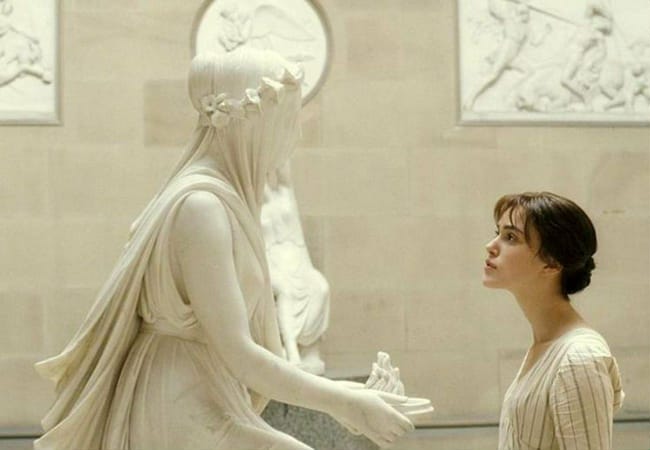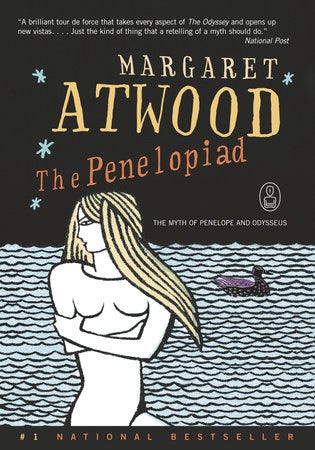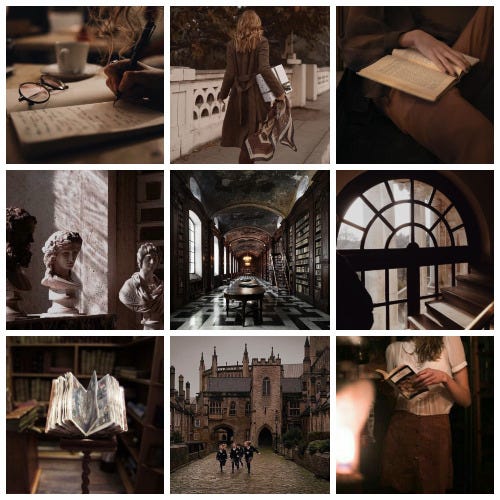The Secret History, Dark Academia, and Academic Elitism
Where did Dark Academia start? Is the 'Campus Novel' only for straight white kids? Plus: Damocles, A Series of Unfortunate Events, and even more about The Secret History
Last week on The Novel Tea podcast, we discussed The Secret History by Donna Tartt. Our discussion was filled with excitement, conspiracy theories, dark mysteries, and MANY unanswered questions. In this newsletter, we’ll discuss The Secret History’s climax, then zoom out to talk about the (questionable?) origins of dark academia, and finally, we’ll share some book recommendations. We’ve got a lot to talk about, so settle in!
Welcome to The Novel Tea Newsletter, a companion to The Novel Tea podcast. Here, you’ll find book reviews, thematic literary analysis, and cultural commentary to help you thoughtfully engage with the world.
New posts come out every Tuesday. If you enjoy reading our work, and want to show your appreciation for the time and effort we put into it, please consider subscribing and sharing our newsletter with others.
Another Theory about The Secret History
This section of this newsletter contains spoilers for The Secret History - if you haven’t read it yet, skip ahead
Knowledge of Bunny’s impending murder is what drives the first 200 or so pages of the book - but when we finally get to it, we don’t exactly get an answer as to what happened, or how. It becomes obvious by the end of the book that the narrator, Richard Papen, is not a very reliable source of information. He admits to painting Julian, his mentor, in a brighter light before realizing the kind of person he truly is:
I had always thought Henry’s coldness essential, to the marrow, and Julian’s only a veneer for what was, at bottom, a warm, kind-hearted nature. But the twinkle in Julian’s eye as I looked at him now, was mechanical and dead. It was as if the charming theatrical curtain had dropped away and I saw him for the first time as he really was: not the benign old sage, the indulgent and protective good-parent of my dreams, but ambiguous, a moral neutral, whose beguiling trappings concealed a being watchful, capricious, and heartless.
Knowing that he is an unreliable narrator, we start to realize that maybe Richard lied to us, and it was he who pushed Bunny to his demise (listen in to the episode to hear more about this theory). And yet - why would someone lie if not to protect themselves or their loved ones?
After listening to the episode again myself, it is precisely this question that led me to another theory that I may believe more. Let me repeat: why else would someone lie, if not to protect themselves or their loved ones? Throughout the book, we are very cognizant of the fact that Richard has an infatuation with Camilla (not sure why, she isn’t given much of a personality in the book but maybe that’s just Richard’s blurred sense of reality coming through to his storytelling capabilities again).
As chaos ensues within the group after Bunny’s body is found, the relationship between Charles, Henry and Camilla becomes very tense, toxic and fragile. My thoughts: perhaps this is because Camilla is filled with dismay and cannot accept what she has done. And so Charles becomes so overprotective and overbearing, that it makes Camilla feel trapped, and she runs to Henry for help. Henry, knowing this whole idea was his, regretfully (or maybe not so regretfully?) feels responsible for putting Camilla in this position and comforts her a little too much.
As Richard’s feelings for Camilla never go away, he decides to heavily imply that Henry pushed Bunny in his narration. Henry is dead, so isn’t that the safest bet anyway?
Do you have any interesting Secret History theories? Let us know in the comments!
Did The Secret History create Dark Academia?
Before we get into the long-standing question of whether The Secret History created the genre of dark academia - what is dark academia?
Dark academia is an aesthetic, a phenomenon, and a “vibe.” It usually consists of Gothic or Victorian-esque elements, a strong sense of 19th-century culture and reference, and a feeling of danger or impending doom.
Picture this: it’s a gloomy day in the middle of October. It looks like it’s about to rain, so you’re sitting inside your quiet dorm room studying for your next exam. You look outside to see your favorite hangout spot on campus empty. The staircase in the courtyard by the brick university library. You put on your tweed jacket, grab your favorite book, throw your hair up in a red ribbon, and step outside.
To me, this is dark academia: a vivid and specific visual ‘look’ contained within the internet through social media applications like TikTok, Instagram, or Tumblr. So, what does any of this have to do with The Secret History? Did The Secret History create this subculture?
The answer is… maybe? It’s difficult to pinpoint the exact origin of dark academia, but I think the general aesthetic of campus living, and glamorization of academia is an amalgamation of many books and movies that have taken off in the past few decades. Harry Potter and even the 2005 Pride and Prejudice (okay, this might be more light academia but come on, the classical architecture of Mr. Darcy’s house? Elizabeth’s constant obsession with reading, the Shakespearean references, the tear-stained letters, the vast but gloomy gardens?), take on a more modern representation of what academia aesthetics is today.

The Secret Beginnings of Dark Academia
This brings me to an interesting thought: what was my first experience with Dark Academia? Was I reading Dark Academia at a younger age, before I became aware of the trend in the late 2010s and I just didn’t know it yet? What else is out there that maybe was Dark Academia but not marketed so at the time?
As I pondered the question and pictured the prep-school-inspired attire and mysterious undertones that dark academia provides, an image came to me.

A series about a dreadful and mysterious murder, set in various gothic-inspired structures, including elements such as secret societies, old books, intellectual pursuits, dark sacrifices, and academic accomplishments. What could be more darkly academic than A Series of Unfortunate Events by Lemony Snicket?
As I reflect on this series as an adult, I realize how complex the storyline is and the number of literary references that went over my head when I first read it. You can find a full and comprehensive list of these references here, but I wanted to touch on just a few of them in depth.
The series consists of an orphaned family of three: Violet, Klaus and Sunny Baudelaire. The name Baudelaire might have been inspired by Charles Baudelaire, a French poet who is most known for his collection of poems called The Flowers of Evil.
A translated excerpt from the poem Hymn to Beauty by Charles Baudelaire says:
O Beauty! dost thou generate from Heaven or from Hell?
Within thy glance, so diabolic and divine,
Confusedly both wickedness and goodness dwell,
And hence one might compare thee unto sparkling wine.
As Charles addresses the origins of beauty, it begs the question, is beauty terrifying? Where beauty may be diabolic or wicked, as Baudelaire describes, it may also entail conspiracy or death. Donna Tartt refers to this concept in The Secret History. “Beauty is terror. Whatever we call beautiful, we quiver before it.” (Next week we’ll be diving into this statement even more, so stay tuned)
In Book 3 of A Series of Unfortunate Events: The Wide Window, the Baudelaire children arrive at a dock to meet their newest guardian, Aunt Josephine (played by Meryl Streep in the 2004 movie rendition). The dock is called Damocles dock, a reference to Damocles, a servant of Dionysus.
Though rich and powerful, Dionysus was unhappy, and one day Damocles showered him with compliments - this, of course, angered Dionysus. Damocles is invited to sit at the king’s throne and is delighted by this offer, but once seated he is shocked to see a sharp sword hanging by a thin thread above him. It is this story where the saying “the sword of Damocles” originated, which indicates a feeling of danger, or impending doom.

Greek references and impending doom? Was A Series of Unfortunate Events just a children’s version of A Secret History? Just kidding…
Did you have any early experiences of dark academia? Where do you think dark academia started? Let us know in the comments!
— Neha
The Dark Side of Academia
Whether or not The Secret History created dark academia, the genre and aesthetic did catapult to prominence in the late 20th century and early 2000s. As Neha discussed above, this may have been partly due to the internet and social media - but also, the nature of academia itself was changing during this time, and it is interesting to think about how life influenced art and vice versa.
At the turn of the century, college degrees started to become less of an elitist badge of honor, and more and more necessary for economic survival. While in the previous decade, a high school diploma was all you needed for an entry level position in journalism or business - now, a bachelor’s degree, and sometimes even a master’s, is a requirement. The unique status of a university as a place for exclusive learning and grooming was starting to change
This is also the same century in which universities started to become more inclusive of women and Black students: after Brown v. Board of Education ruled in 1965 that separating students on the basis of race was unconstitutional, many other institutions of higher education started to make official efforts to desegregate.
Despite changes in laws, we know that segregation is hardly just a thing of the past. Today, 2/3 of the student body of Harvard is made up of the top 20% of income earners. So.. what exactly are we pining for?
When we take into account these changes from the 20th into the 21st centuries, the nostalgia of dark academia, which romanticizes older academic culture and yearns for the past - the days of all white students, uniforms that signaled status and hierarchy, and glorification of oppressive forces (slavery literally built the foundations of most Ivy League colleges) - starts to take on a genuinely sinister tone.
Academia can, in fact, be quite dark.
From a craft perspective, I understand why so many writers are drawn to the campus: it is a sheltered, enclosed environment, students are typically on the cusp of adulthood (just old enough that they know what they don’t know), and the power structures inherent in formal schooling make for interesting dynamics.
And it is for these exact reasons that the campus novel would be so much more interesting if it was more diverse. How is the power imbalance amplified when a Black student has a white professor? What does it feel like to arrive in a strange new place as a queer teenager who isn’t out yet? What is it like to navigate the many staircases and hills of college campuses when you identify as differently-abled?
Diversifying the Campus Novel
The appeal of the campus novel - new beginnings, the pursuit of knowledge, coming of age - spans across age, gender, class, race, and identity. We talked on last week’s episode about The Idiot by Elif Batuman, as well as Babel by R.F. Kuang, but there is so much more out there. Below you’ll find campus novels that aren’t just about the white and wealthy.
On Beauty by Zadie Smith: okay, I’m cheating - this isn’t exactly a campus novel (I see it more as a family drama), but a large part of it revolves around a fictional college, Wellington (which is implied to be a fictional Harvard). This book beautifully weaves themes of race, class, political ideologies, familial obligations, gender roles, and cultural differences, all while being incredibly readable. I have never before read a book that is just as down-to-earth as it is literary and meditative (and so I was thrilled to learn that
at Novel Pairings will be covering the book in their spring semester).The Laughter by Sonora Jha: this book reads like a get-under-your-skin slow-burn thriller. It is told from the perspective of an older white professor who becomes enamored by a new Pakistani-American female professor who is helping her nephew acclimate to a new country. Though less subtle in its handling of privilege and class than On Beauty, the book was entertaining to read and important in its subject matter (if you enjoyed the can’t-look-away-from-this-car-crash experience of reading about an unlikeable character in Yellowface, I think you’ll appreciate this book as well).
Harvard Square by André Aciman: I have not yet read this book, but I am intrigued by the jacket description: “It’s the fall of 1977, and amid the lovely, leafy streets of Cambridge a young Harvard graduate student, a Jew from Egypt, longs more than anything to become an assimilated American and a professor of literature. He spends his days in a pleasant blur of seventeenth-century fiction, but when he meets a brash, charismatic Arab cab driver in a Harvard Square café, everything changes.”
Ebony and Ivy: Race, Slavery, and the Troubled History of America's Universities by Craig Steven Wilder: from the publishers: “Many of America's revered colleges and universities-from Harvard, Yale, and Princeton to Rutgers, Williams College, and UNC-were soaked in the sweat, the tears, and sometimes the blood of people of color…Ebony and Ivy is a powerful and propulsive study and the first of its kind, revealing a history of oppression behind the institutions usually considered the cradle of liberal politics.” I can’t wait to read this one.
Special mention: Dear White People - not a book, but a great campus show.
And if you can’t get enough of the campus novel, here are 60 more.
— Shruti
More on The Secret History
If, after listening to our hour-long discussion of The Secret History, you still want more, here are some links you might enjoy (all contain spoilers):
An exploration of how Tartt brilliantly sets up tension with the same techniques that Hitchcock used by
on SubstackA hilarious negative review of the novel by someone who apparently completely missed the point from the Michigan Daily
Up Next
Next week, we will be discussing The Penelopiad by Margaret Atwood - the podcast episode comes out on March 6th, so mark your calendars!








Ah The Secret History just cannot be matched! I love the link to Lemony-Snicket! I never read the books as a kid but I loved the movie. Now I am interested to see what I missed out on
I loved this piece so much. I've never thought of the Camilla theory before. (And I felt similarly about her character / Richard's infatuation. It made me think of how Hemingway portrayed the woman in the only book of his I've ever read, The Sun Also Rises, and how there was a scene where they were dancing and the MC described her as like...a beautiful statute they were dancing around? And it made me wonder if Hemingway at least understood that that was how he was portraying her, or if he was clueless. And I felt like this book was the same...did Tartt do it on purpose because Richard was the narrator, or did she not envision any depth in Camilla? Fodder for a whole 'nother piece!!)
Also, thank you for the shout-out!! But even more exciting was the shout-out to Lemony Snickett. Original dark academic!!